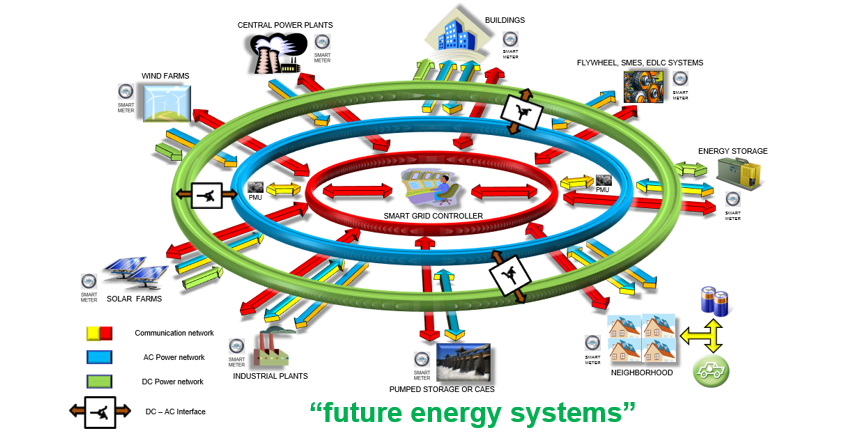Welcome
The Smart Sustainable Electrical Energy Systems (SSEES) group forms part of POETS, a NSF ERC, GRAPES, a NSF I/UCRC, and NCREPT at the University of Arkansas.
The power grids throughout the world are changing by moving from centralized power sources and unidirectional power flows to distributed power sources and bidirectional power flows. The new grids are the so-called “smart grids”. Several initiatives are taking place worldwide to develop a “smart(er) grid” to satisfy reliability and robust requirements of the 21st century.
Sustainable community energy systems are an integrated approach to reduce the environmental impacts of supplying the energy requirements of a community. Here, community is a broader term. That it could be the University of Arkansas campus, a neighborhood, and industrial park, or the city of Fayetteville. Such an energy system uses distributed generation with several enabling technologies, such as renewable energy sources, combined heat and power, and energy storage.
On the regulatory side, pricing structures like time-of-use billing provide incentives for peak shaving and other demand-side management initiatives, encouraging customers to use distributed generation and/or energy storage. These technologies decrease energy produced by traditional power plants by increasing energy obtained from renewable sources, reducing power losses in distribution and transmission systems, recovering waste heat from power generation or boiler systems, and increasing the efficiency of existing generation sources by improving their utilization.
Additionally, the presence of distributed generation and energy storage improves reliability by allowing for islanded operation in the case of grid failure using the “local energy network” (microgrid) concept. This leads to tangible benefits; for example, reducing consumption and emissions from carbon-based fuels, long-term cost savings for both utilities and customers, and improving system reliability (The index SAIDI in the USA is significantly below countries like Japan and others).
The SSEES group works on making the enabling technologies mentioned above a reality. Work performed includes using energy storage more efficiently to integrate renewable generation in the power grid, and more recently, developing new power electronics topologies to connect distributed generation and energy storage to the grid with improved power densities and efficiencies.
